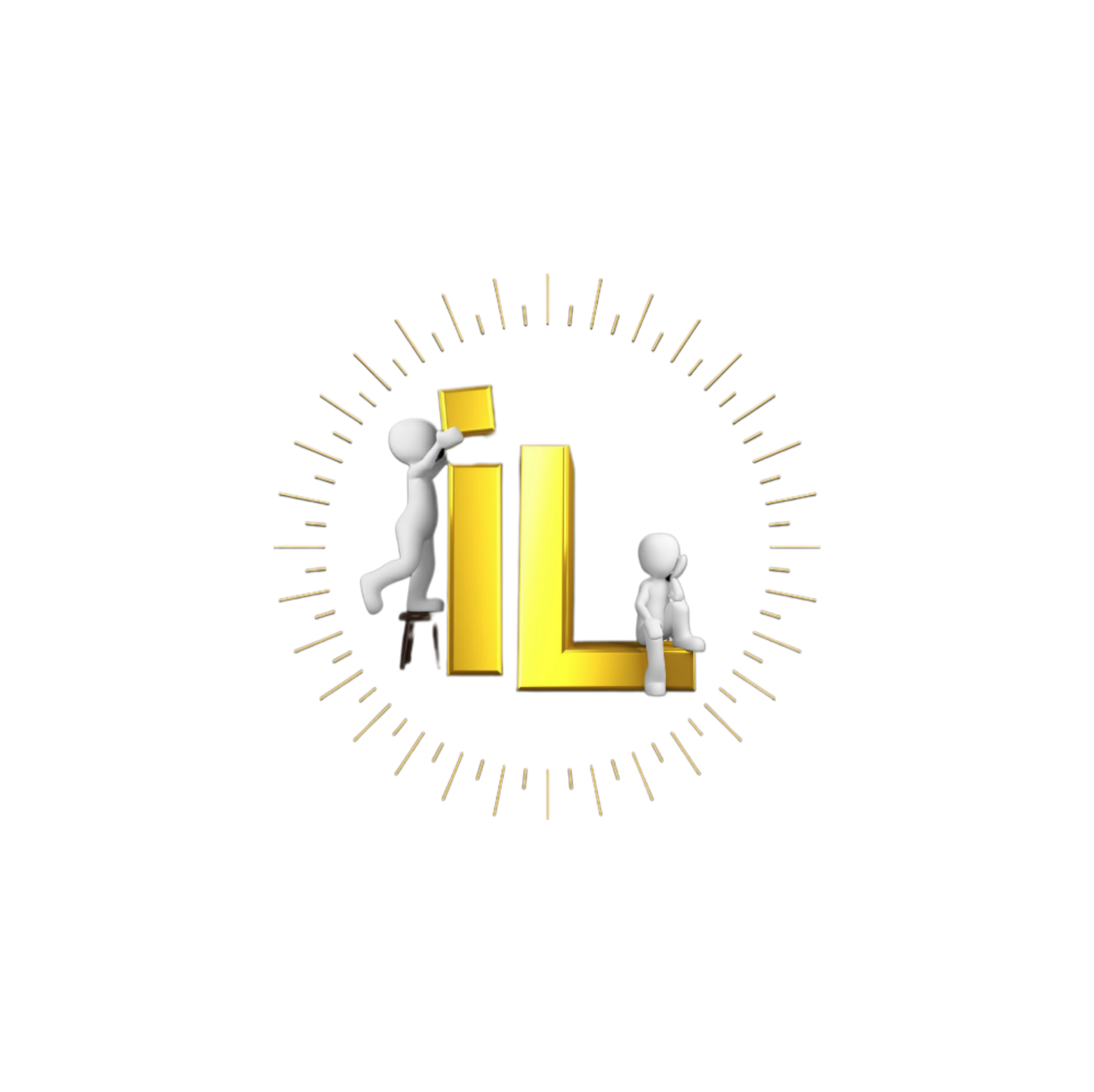Are you ready to unlock the secrets to a healthier, more energetic you? In this comprehensive guide, we’ll explore the transformative power of a balanced approach to diet and fitness. Whether your goal is to shed excess weight, build lean muscle, or simply feel more vibrant in your daily life, this article will equip you with the knowledge and tools to create a sustainable, healthy lifestyle.
From the essential components of nutrition to effective workout routines, we’ll delve into the strategies that can help you achieve your fitness aspirations. Discover how to track your progress, stay motivated, and overcome obstacles along the way. Prepare to embark on a journey that will not only improve your physical well-being but also enhance your overall sense of wellness and vitality.
Are you ready to transform your body and mind? Let’s dive in and explore the diet and fitness secrets that can revolutionize your life.

Key Takeaways
- Unlock the secrets to a healthier, more energetic lifestyle through a balanced approach to diet and fitness.
- Discover the essential components of nutrition and effective workout routines to achieve your fitness goals.
- Learn strategies to track your progress, stay motivated, and overcome obstacles on your journey to a vibrant, healthy you.
- Explore the connection between physical well-being and overall wellness, and how to cultivate a sustainable, positive mindset.
- Gain the knowledge and tools to create a personalized plan that aligns with your unique aspirations and lifestyle.
Understanding the Importance of Diet and Fitness
Maintaining a healthy diet and engaging in regular physical activity are fundamental pillars of a vibrant, energetic lifestyle. A balanced approach to diet and fitness can have a profound impact on your overall well-being, preventing the onset of chronic diseases, and enhancing your energy levels and productivity.
The Impact on Overall Well-being
When you prioritize a healthy lifestyle that includes nutritious eating and consistent exercise, you can experience a remarkable transformation in your physical, mental, and emotional well-being. A wellness-focused approach can boost your mood, reduce stress, and improve your quality of life, empowering you to live life to the fullest.
Preventing Chronic Diseases
A comprehensive diet and fitness regimen can be a powerful tool in the prevention of chronic diseases, such as heart disease, diabetes, and certain types of cancer. By maintaining a balanced diet and engaging in regular cardiovascular health-promoting exercise, you can significantly reduce your risk of developing these life-altering conditions and enjoy a longer, healthier lifespan.
Boosting Energy and Productivity
Proper nutrition and physical activity play a crucial role in enhancing your energy levels and productivity. By fueling your body with the right nutrients and engaging in regular lifestyle changes that include exercise, you can experience a surge in your mental focus, physical stamina, and overall sense of vitality – empowering you to tackle your daily tasks with renewed vigor and enthusiasm.

Nutrition Essentials for a Balanced Diet
Achieving a balanced diet is crucial for maintaining optimal health and fueling your body’s various functions. In this section, we’ll explore the three primary macronutrients – proteins, carbohydrates, and fats – and their essential roles in supporting your overall well-being.
Macronutrients: Proteins, Carbs, and Fats
Proteins are the building blocks of our body, responsible for repairing and maintaining tissues, muscles, and organs. They play a vital role in immune function, hormone regulation, and energy production. Carbohydrates, on the other hand, are the primary source of energy for our cells, particularly our brain and muscles. They come in the form of simple sugars, starches, and fiber, each with its own unique benefits. Fats, often misunderstood, are essential for hormone production, nutrient absorption, and insulation for our organs. They also provide a concentrated source of energy and support brain health.
Micronutrients: Vitamins and Minerals
In addition to macronutrients, our bodies require a variety of micronutrients, such as vitamins and minerals, to function properly. Vitamins, including A, C, D, and the B-complex, are essential for immune function, vision, bone health, and energy metabolism. Minerals, such as calcium, iron, and zinc, play crucial roles in bone density, red blood cell production, and enzyme activation. Incorporating a diverse range of whole, nutrient-dense foods into your diet ensures that you’re meeting your body’s micronutrient needs and supporting its overall well-being.
Diet and Fitness: A Powerful Combination
When diet and fitness are combined, they become a powerful synergy that can transform your physical and mental well-being. The interplay between nutritious eating and regular exercise can lead to sustainable weight management, muscle building, and positive changes in your body composition. By understanding the science behind this dynamic relationship, you can harness its benefits and embark on a journey towards a healthier, more vibrant lifestyle.
Proper nutrition is the foundation for fueling your body’s energy needs and supporting its various functions. When paired with a consistent exercise regimen, the results can be truly remarkable. Regular physical activity not only helps you achieve your weight loss or muscle building goals, but it also enhances your cardiovascular health, boosts your mood, and improves your overall sense of well-being.
| Benefit | How Diet and Fitness Synergy Works |
|---|---|
| Weight Management | A balanced diet rich in nutrient-dense foods, combined with a tailored exercise plan, can create a sustainable calorie deficit, leading to gradual and healthy weight loss. |
| Muscle Building | Consuming adequate protein, combined with strength-training exercises, can stimulate muscle growth and improve body composition, resulting in a leaner, more toned physique. |
| Improved Body Composition | The synergistic effects of diet and fitness can help you achieve a healthier balance between fat and lean muscle mass, leading to a more sculpted and energetic body. |
By embracing the power of this dynamic combination, you can unlock the full potential of your healthy lifestyle and embark on a transformative journey towards optimal physical and mental well-being.

Creating a Sustainable Meal Plan
Developing a sustainable meal plan is crucial for maintaining a healthy diet and lifestyle. In this section, we’ll guide you through the process of creating a personalized meal plan that fits your dietary needs, preferences, and lifestyle. From the convenience of meal prepping to the importance of incorporating variety and flavor, we’ll explore the essential elements of crafting a sustainable approach to your nutrition.
Meal Prepping for Convenience
One of the keys to a successful meal plan is the art of meal prepping. By dedicating a few hours each week to preparing your meals in advance, you can enjoy the convenience of having healthy, portion-controlled options readily available. This not only saves time during busy weekdays but also helps you maintain control over your calorie counting and macronutrient intake.
Incorporating Variety and Flavor
While meal prepping can simplify your routine, it’s important to incorporate variety and flavor into your meal plans to prevent boredom and ensure long-term adherence. Experiment with different healthy eating recipes, explore new nutrition-packed ingredients, and find creative ways to make your meals both nutritious and delightful to your taste buds. This approach will not only keep your palate engaged but also provide your body with a diverse range of essential macronutrients and micronutrients.
Exercise Routines for Every Fitness Level
Regardless of your current fitness level, there are a variety of effective exercise routines that can help you achieve your goals. Whether you’re seeking to improve your cardiovascular health, build muscle, or enhance your flexibility and mobility, this section will provide guidance on creating a balanced exercise regimen tailored to your individual needs and preferences.
Cardio for Heart Health
Cardiovascular exercises, such as brisk walking, jogging, cycling, or swimming, are essential for maintaining a healthy heart. These exercise routines not only strengthen your heart muscle but also improve your overall endurance and stamina. Incorporating regular cardio into your workout plan can help lower your risk of heart disease, regulate blood pressure, and boost your energy levels throughout the day.
Strength Training for Muscle Building
Incorporating strength training exercises into your fitness routine is crucial for building and maintaining lean muscle mass. From bodyweight exercises to resistance training with free weights or machines, these workout plans can help you increase your muscle strength and muscle building capabilities. By challenging your muscles, you’ll not only improve your physical appearance but also enhance your overall metabolic rate and functional strength.
Flexibility and Mobility Exercises
In addition to cardiovascular and strength-based exercise routines, it’s essential to prioritize flexibility and mobility exercises. These practices, such as stretching, yoga, and Pilates, can improve your range of motion, enhance your joint function, and reduce the risk of injury. By incorporating flexibility and mobility exercises into your routine, you’ll experience improved posture, better balance, and a greater sense of overall bodily awareness.

Overcoming Obstacles and Staying Motivated
Embarking on a diet and fitness journey can be challenging, but with the right mindset and strategies, you can overcome obstacles and maintain long-term motivation. Setting realistic goals that align with your aspirations and lifestyle is a crucial first step. By breaking down larger objectives into manageable milestones, you can celebrate small victories and stay focused on your path to a healthier, more vibrant lifestyle.
Setting Realistic Goals
When it comes to goal setting, it’s essential to be honest with yourself about your current abilities, time constraints, and long-term ambitions. Avoid setting overly ambitious targets that may lead to disappointment and burnout. Instead, focus on creating specific, measurable, achievable, relevant, and time-bound (SMART) goals that will keep you motivated and on track.
Finding Accountability Partners
Surrounding yourself with a supportive network can significantly enhance your accountability and help you stay motivated throughout your journey. Consider enlisting the help of friends, family members, or joining online communities dedicated to healthy habits and lifestyle changes. These accountability partners can provide encouragement, share their experiences, and offer valuable insights to keep you motivated and on the path to success.
Remember, the key to overcoming obstacles and maintaining long-term motivation is to approach your diet and fitness journey with a flexible, adaptable mindset. By setting realistic goals and surrounding yourself with a supportive network, you can navigate the challenges and celebrate the triumphs that come with embracing a healthier, more vibrant lifestyle.
The Mind-Body Connection
Achieving a healthy lifestyle is not just about the physical aspects; it’s also about the profound connection between your mind and body. In this section, we’ll explore the importance of managing stress and cultivating mindful eating habits, as these practices can significantly impact your overall well-being and mental health.
Stress Management Techniques
Chronic stress can take a toll on both your physical and mental well-being, contributing to a range of health issues, from cardiovascular problems to emotional distress. To counteract the negative effects of stress, we’ll delve into various techniques that can help you find balance and inner calm. Practices like meditation, breathwork, and mindfulness exercises can be powerful tools in your arsenal for stress management and overall wellness.
Mindful Eating Practices
In addition to managing stress, developing a mind-body connection also involves cultivating a positive relationship with food. Mindful eating practices can help you become more attuned to your body’s hunger and satiety cues, leading to a healthier and more fulfilling dining experience. By slowing down, savoring each bite, and paying attention to the sensations and emotions associated with eating, you can foster a deeper appreciation for the nourishment your body receives. These mindful eating techniques can not only improve your mental health but also contribute to more sustainable and mindful dietary choices.
| Stress Management Techniques | Mindful Eating Practices |
|---|---|
| Meditation | Slow down and savor each bite |
| Breathwork | Tune in to hunger and satiety cues |
| Mindfulness exercises | Cultivate appreciation for nourishment |
Embracing a Healthy Lifestyle at Any Age
Maintaining a healthy diet and active lifestyle is essential throughout all stages of life. Whether you’re guiding your children towards a lifetime of wellness or seeking to stay vibrant and active as you age, the principles of good nutrition and regular exercise remain paramount.
Diet and Fitness for Children
Instilling healthy habits in children from an early age is crucial for their physical, mental, and emotional well-being. By encouraging a balanced diet rich in fruits, vegetables, whole grains, and lean proteins, and incorporating fun, age-appropriate physical activities into their daily routines, you can set them up for a lifetime of healthy lifestyle choices. Engage your children in the kitchen, teach them about macronutrients and portion control, and make physical activity a family affair to foster a deep appreciation for fitness and overall wellness.
Staying Active as You Age
As we grow older, maintaining an active lifestyle becomes increasingly important for our physical and mental well-being. Adapt your fitness routines to accommodate any changes in mobility or joint health, and explore low-impact exercises such as walking, swimming, or tai chi that can help you stay physically fit and mentally sharp. Embrace a balanced diet rich in nutrient-dense foods to support your aging body and maintain your energy levels. With the right approach, you can continue to enjoy the benefits of a vibrant, healthy lifestyle well into your golden years.

Tracking Progress and Celebrating Milestones
Monitoring your progress tracking and celebrating your achievements are crucial for sustaining your diet and fitness journey. In this section, we’ll introduce various fitness trackers and apps that can help you measure your progress and stay accountable. Additionally, we’ll discuss the importance of rewarding yourself along the way, whether it’s through small treats or meaningful milestones, to foster a positive mindset and maintain your motivation for developing healthy habits.
Using Fitness Trackers and Apps
Advancements in technology have made it easier than ever to track your fitness progress. Wearable fitness trackers and mobile apps offer a wealth of data-driven insights to help you understand your body’s response to your diet and exercise routine. From monitoring your heart rate and step count to analyzing your sleep patterns and calorie expenditure, these tools can provide valuable feedback to keep you on track and motivated.
Popular fitness tracker brands like Fitbit, Apple Watch, and Garmin offer a range of features to suit your needs, whether you’re a casual exerciser or a seasoned athlete. Additionally, numerous apps such as MyFitnessPal, Strava, and Peloton provide comprehensive platforms for logging your workouts, monitoring your nutrition, and connecting with like-minded individuals for added motivation.
Rewarding Yourself Along the Journey
Achieving your fitness goals is a remarkable feat, and it’s important to celebrate your progress along the way. Rewarding yourself, whether through small indulgences or more significant milestones, can help maintain your motivation and foster a positive relationship with your healthy habits.
Consider treating yourself to a massage, a new piece of workout gear, or a delicious, nutritious meal after reaching a challenging milestone. Acknowledging your hard work and successes, even in small ways, can reinforce the positive changes you’re making and encourage you to continue on your path to a healthier, more vibrant lifestyle.
| Fitness Tracker | Features | Price Range |
|---|---|---|
| Fitbit Charge 5 | – Heart rate monitoring – Sleep tracking – Activity tracking – Guided workouts | $129.95 – $149.95 |
| Apple Watch Series 7 | – Heart rate monitoring – ECG app – Workout tracking – Cellular connectivity | $399.00 – $749.00 |
| Garmin Forerunner 945 | – GPS tracking – Heart rate monitoring – Training load and recovery insights – Multisport tracking | $499.99 – $599.99 |
Diet and Fitness Resources and Tips
As you embark on your journey towards a healthier, more vibrant lifestyle, it’s essential to have access to reliable diet and fitness resources. From informative websites to insightful books, these tools can provide you with the knowledge and guidance you need to achieve your goals.
Trusted Websites and Books
For up-to-date, evidence-based information on nutrition, exercise, and overall wellness, we recommend exploring the following trusted websites:
- The American College of Sports Medicine (ACSM) – acsm.org
- The Academy of Nutrition and Dietetics – eatright.org
- The Centers for Disease Control and Prevention (CDC) – cdc.gov/nutrition
In addition to these online resources, consider adding these educational and inspirational books to your reading list:
- “The Omnivore’s Dilemma” by Michael Pollan
- “Atomic Habits” by James Clear
- “The Sports Medicine Physician” by Lyle J. Micheli, M.D.
Seeking Professional Guidance
While online resources and self-guided approaches can be valuable, it’s often beneficial to seek the expertise of professionals in the field of diet and fitness. Consider consulting with:
- Registered Dietitians (RDs) for personalized nutrition planning
- Certified Personal Trainers (CPTs) for customized exercise programs
- Fitness and Wellness Coaches for holistic lifestyle guidance
These professionals can provide you with the tailored support and accountability you need to achieve sustainable, long-term success in your diet and fitness journey.

Conclusion
In conclusion, embracing a balanced approach to diet and fitness is a transformative journey that can lead to a more vibrant, energetic, and fulfilling lifestyle. By understanding the essential principles of nutrition, incorporating effective exercise routines, and developing sustainable habits, you can unlock the full potential of your physical and mental well-being. Remember, this is not a one-size-fits-all pursuit; it’s a personalized path that requires patience, dedication, and a willingness to adapt.
Embrace the tools and strategies outlined in this comprehensive guide, and embark on a journey towards a healthier, happier you. Prioritize your wellness, nourish your body with nutrient-rich foods, and make physical activity a consistent part of your daily routine. With a balanced approach to diet and fitness, you’ll not only transform your physical appearance but also experience a profound shift in your overall sense of energy, vitality, and mental clarity.
As you continue to navigate this transformative journey, remember to celebrate your progress, stay motivated, and surround yourself with a supportive network. With the right mindset and a willingness to adapt, you can create a sustainable healthy lifestyle that will positively impact every aspect of your life. Embrace this opportunity to embark on a path towards a more vibrant, energetic, and fulfilling future.
FAQ
What are the key benefits of maintaining a healthy diet and fitness lifestyle?
Adopting a balanced diet and regular exercise can provide a wide range of benefits, including improved overall well-being, prevention of chronic diseases, and increased energy and productivity.
How do I ensure I’m getting the right balance of macronutrients (proteins, carbs, and fats) in my diet?
To achieve a balanced macronutrient intake, it’s essential to understand the role of each macronutrient and how to incorporate them into your meals. We’ll provide guidance on determining the optimal ratios based on your individual needs and goals.
What are some effective exercise routines I can incorporate into my lifestyle?
Whether your goal is to improve cardiovascular health, build muscle, or increase flexibility, we’ll explore a variety of exercise routines suitable for different fitness levels, including cardio, strength training, and mobility exercises.
How can I create a sustainable meal plan that fits my lifestyle and dietary preferences?
Developing a personalized meal plan that is both nutritious and enjoyable is key to long-term success. We’ll discuss strategies for meal prepping, incorporating variety, and ensuring your plan aligns with your dietary needs and preferences.
What are some effective strategies for overcoming obstacles and staying motivated throughout my diet and fitness journey?
Maintaining motivation can be challenging, but setting realistic goals, finding accountability partners, and celebrating your milestones can help you overcome obstacles and stay on track with your health and fitness aspirations.
How can I incorporate the mind-body connection into my diet and fitness routine?
Achieving a healthy lifestyle extends beyond just physical well-being. We’ll explore techniques like stress management and mindful eating practices to help you cultivate a positive relationship with your body and mind.
Are there any special considerations for children and older adults when it comes to diet and fitness?
Maintaining a healthy lifestyle is important at every stage of life. We’ll provide guidance on instilling healthy habits in children and helping older adults stay active and engaged in their fitness routines.
What are some reliable resources and tips for further enhancing my diet and fitness journey?
In addition to the information provided in this guide, we’ll recommend trusted websites, books, and strategies for seeking professional guidance to ensure your diet and fitness approach is tailored to your individual needs and goals.





